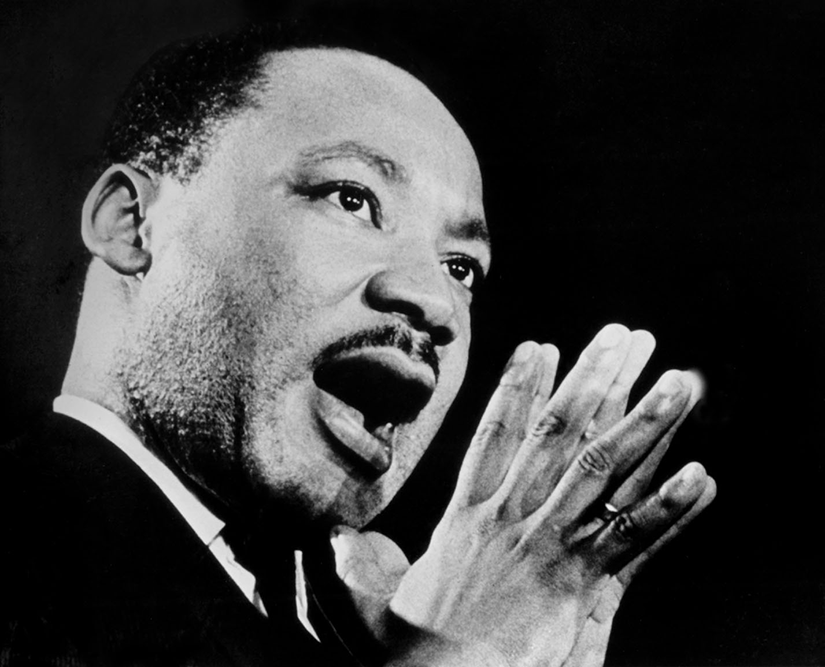NASHVILLE, Tenn. — On April 3, 1968, the night before he was murdered, Rev. Martin Luther King Jr. delivered his famous “Mountaintop” speech at the Mason Temple, the Church of God in Christ in Memphis, Tenn.
“I just want to do God’s will,” he told the enthusiastic crowd packed inside the church sanctuary. “And He’s allowed me to go up to the mountain. And I’ve looked over, and I’ve seen the Promised Land. I may not get there with you. But I want you to know tonight, that we, as a people, will get to the promised land.”
The assassination of Rev. King evoked a visceral reaction in communities across the country, as grief, anger and racial tensions rose to a volatile level.
The civil rights leader had come to Memphis to stand with the striking sanitation workers. When Rev. King was killed, it represented for many people nothing less than the slaying of a prophet.
Half a century after his death, many of the issues he tackled are still part of our national dialogue.
“Fifty years ago it was about overturning laws and policies that really concretely divided us,” said Megan Black, a parishioner at Christ the King in Nashville. She holds a master of divinity degree from Vanderbilt University.
“Now, we’ve changed the laws but we still have the structures that are designed to keep people of color sick, uneducated and incarcerated,” she told the Tennessee Register, Nashville’s diocesan newspaper. “The consequences are very much felt and lived in the black community. There’s still work to be done.”
The long march toward equality, toward the mountaintop, and the promised land that Rev. King spoke of the day before he died, continues.
 Holy Cross Father Theodore Hesburgh, then president of the University of Notre Dame, second from left, joined hands with the Rev. Martin Luther King Jr., the Rev. Edgar Chandler and Msgr. Robert J. Hagarty of Chicago, far right, in this 1964 file photo. Fifty years after Rev. King’s assassination, advocates say there is still work to do in dismantling racism.Photo Credits: Courtesy of University of Notre Dame
Holy Cross Father Theodore Hesburgh, then president of the University of Notre Dame, second from left, joined hands with the Rev. Martin Luther King Jr., the Rev. Edgar Chandler and Msgr. Robert J. Hagarty of Chicago, far right, in this 1964 file photo. Fifty years after Rev. King’s assassination, advocates say there is still work to do in dismantling racism.Photo Credits: Courtesy of University of Notre DameIn the days following Rev. King’s death, Father Pat Connor, now a retired priest of the Diocese of Nashville, and fellow members of the Nashville diocesan priests’ council met in Memphis with city government representatives and then with members of the sanitation workers’ union, which the mayor of Memphis did not recognize at the time. They decided to issue a statement backing the workers, reinforcing “that they had a right to march and be on strike,” Father Connor said.
They agreed when Rev. King told the workers in Memphis that “all labor has dignity,” and “it’s a crime for people to live in this rich nation and receive starvation wages.” The priests’ council also recommended to Nashville Bishop Joseph A. Durick that the diocese make a $1,000 donation to support the striking workers’ families, almost all of whom were African-Americans living below the poverty line.
“We began to get some pretty nasty calls at the rectory” after that news came out, Father Connor said. “Some people had a really bad reaction to that.”
That brought into sharp focus for Father Connor just how bitterly divided the people of the diocese were on confronting racial justice.
Members of the black Catholic community often wondered, “Are there any … priests of white congregations openly challenging segregation? Encouraging their congregations to take action to end segregation? To be part of the civil rights movement?” Mitchell said. “If they were, they were keeping it secret from the black folks.”
One of Rev. King’s legacies is that “he held the Church accountable for its complicity in racism,” said Black, of Christ the King Parish. “He reminded the Church of what it stands for.”
A lifelong Catholic, Black is the national clergy organizer for PICO National Network. In her job, she has worked with organizers in the Black Lives Matter movement, and “absolutely” sees these modern-day advocates for racial justice as walking in the footsteps of Rev. King, holding both civil and clerical servants accountable.
The Catholic Church has a role to play in dismantling racism, Black said, noting the U.S. Conference of Catholic Bishops last August established the Ad Hoc Committee Against Racism, with Bishop George V. Murry of Youngstown, Ohio, as its chairman. The U.S. bishops also are expected to issue a new pastoral on racism.
But more action is needed, Black feels.
Since the Catholic Church in U.S. has historically been majority white, “the Church doesn’t fully experience the pain of this problem,” Black said.
With only eight black Catholic bishops currently active in the U.S. Church, the bishops “largely represent the white Catholic experience,” she noted, and don’t collectively grasp the weight of racism. What’s needed is “profound spiritual leadership … to confront race in a radical way.”